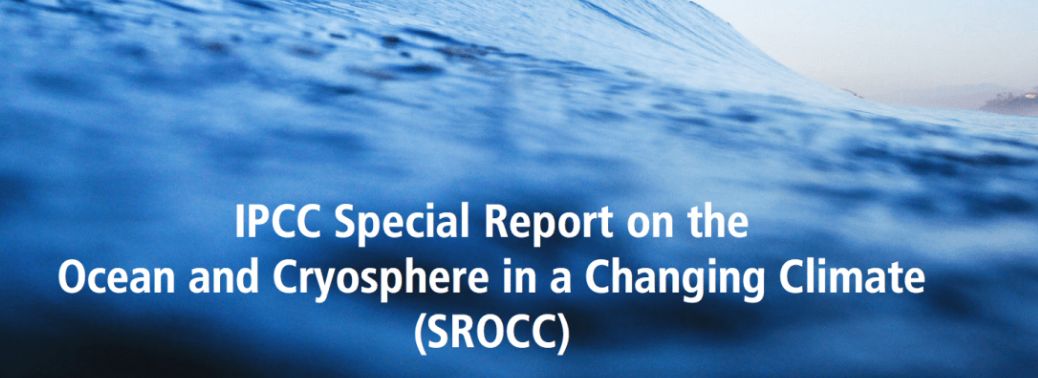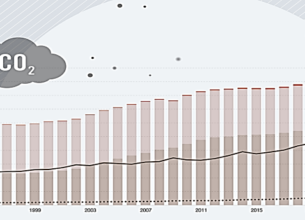SPECIAL REPORT ON THE OCEAN AND CRYOSPHERE IN A CHANGING CLIMATE
26, Sep 2019

Prelims level : Environment- Climate Change
Mains level : GS-III- Conservation, environmental pollution and degradation, environmental impact assessment.
Why in News?
- The Intergovernmental Panel on Climate Change (IPCC) Special Report on the Ocean and Cryosphere in a Changing Climate (SROCC) was released in Monaco on 25th
- The report highlights the destructive and irreversible changes on Earth’s ice sheets, glaciers, and oceans, and warns that the hazards posed by unprecedented warming will only worsen if greenhouse gas emissions continue at their current rate.
About IPCC:
- IPCC was founded in November 1988 by the World Meteorological Organization (WMO) and the United Nations Environment Program (UNEP) jointly as a place to study global warming problems at a governmental level.
- It reviews the science related to climate change and its impacts on the future to help policymakers and world leaders prepare to act on climate change and its spinoff effects.
- It is the mechanism that accumulates scientific knowledge on global warming while debates on the international countermeasures have been made in the COPs (Conference of the Parties) of United Nations Framework Convention on Climate Change (UNFCCC).
- The IPCC doesn’t conduct research of its own.
Background:
- The report is the third in the series of three Special Reports in the current Sixth Assessment Report (AR6) cycle which began in 2015 and will be completed in 2022.
- The first was Special Report on Global Warming of 1.5 °C and the second was the Special Report on Climate Change and Land (SRCCL), also known as the “Special Report on climate change, desertification, land degradation, sustainable land management, food security, and greenhouse gas fluxes in terrestrial ecosystems” which was released on August 7, 2019.
Special Report on the Ocean and Cryosphere in a Changing Climate (SROCC):
- SROCC is an analysis of sound research over recent years about the Earth’s diverse water cycle and it’s many dependants.
- It is the first report that discusses the effects of climate change on oceans and parts of the Earth frozen in ice, collectively known as the cryosphere.
- The three-year-long survey summarized in the report looks at the adverse impacts of climate change on the oceans, coastal regions, polar ice caps, and mountain ecosystems as well as the impacts on human communities.
- Possible solutions for the mitigation and adaptation to climate-related change has also been suggested by the report’s authors.
- The report was the work of 104 scientists from 36 countries world over, who have referred to more than 7,000 scientific publications to compile their findings.
- The Oceans and Cryosphere report addresses these ecosystems in five different chapters, as follows:
- High mountain areas
- Polar regions
- Rising sea levels and their impacts on islands and coasts
- Changing ocean and marine ecosystems and their effects on the communities that depend on them
- Managing the risks of extreme climate changes
- According to the report, the world’s oceans have absorbed more than 90% of the warming that has occurred on Earth over the last 50 years, with the rate of ocean warming more than doubling since 1993.
- As a result of increasing rates of ice loss from the Greenland and Antarctic ice sheets, ocean levels rose around 15 centimeters during the 20th century and are currently rising at a rate of 3.6 millimeters per year — and accelerating.
Impact of Warming Ocean:
- Warming oceans will lead to more frequent tropical cyclones, the report said that extreme sea-level events that have historically occurred once each century will occur every year by 2050, increasing flooding risks for low-lying coastal cities and island communities.
- As a result, some small islands, which are home to 65 million people globally, are at risk of becoming uninhabitable.
- Glacial melt, reductions in snow cover, and thawing of permafrost are also projected to increase the risk of landslides, avalanches, rockfalls, and floods in mountain regions.
- According to the report the Arctic region, where 4 million people live,especially indigenous peoples, have already had to adjust their travel and hunting patterns in response to changes in seasonal ice and snow conditions, some communities have also planned for relocation.
- Warming of the world’s oceans has also disrupted the abundance of fish and shellfish stocks in some regions, leaving communities that depend on seafood at risk of decreased food security.
Way Forward:
- The open sea, the Arctic, the Antarctic and the high mountains may seem far away to many people, but we depend on them and are influenced by them directly and indirectly in many ways — for weather and climate, for food and water, for energy, trade, transport, recreation and tourism, for health and wellbeing, for culture and identity.
- Significantly reducing greenhouse gas emissions, protecting and restoring ecosystems, and carefully managing the use of natural resources, the report said, would limit the impact of climate change on oceans and ice-covered regions around the world.








